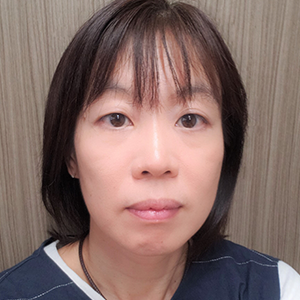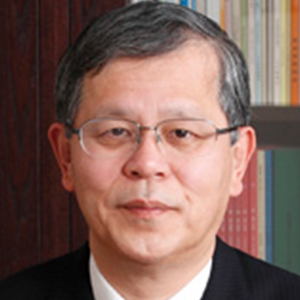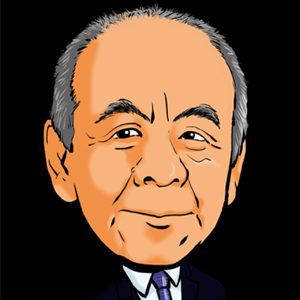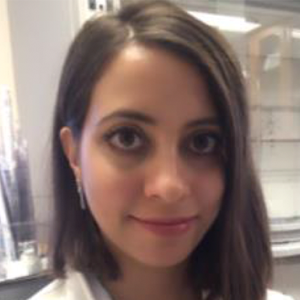University initiated platform creating open innovation (outbound) can really work or not, to nurture entrepreneurship continuously. As industry-academia collaborative R&D program, hundreds millions US Dollars Japan’s project called “Center of Innovation” program launched by MEXT since 2013 might show two case studies on quality of life introducing today. What are imperative elements for further success for innovation ecosystem in Japan? Comparatively, an entrepreneur is introduced here who is a professor of University Washington in Seattle, for unique invention leading to large social impact. It is obvious they both have been facing serial difficulties to overcome the various kinds of borders. Across cultures, everyone here is expected to try to reveal the common elements to lead young researchers up to future success.
Session Panelists

- Nanae Michida
- Mazda Motor Corporation
- Nanae Michida is a Technical Leader of Mazda Motor Corporation and has been dedicated into the establishment of the design of interior of vehicles based on psychophysiology for the comfort and pleasure to every passenger for 20 years. And recently she had been assigned a leader for new application in practical use as a specially appointed professor of Hiroshima University till Sep. 2019 for accelerating COI project called “ KANSEI innovation (developing for brain-emotion interface) “ and trying to bridge the gap between basic science and social implementation. Her interest is to trigger and share a happy feeling through products or services applying KANSEI mechanism.

- Shigeyuki Nakaji
- Hirosaki University Graduate School of Medicine, Specially-appointed professor, Department of Social Medicine (MD PhD)
- Graduated from Hirosaki University School of Medicine at 1979. Professor, Department of Social Medicine, Hirosaki University Graduate School of Medicine between 2004 and 2017Research Leader of Hirosaki COI from 2013. Chairman of Society of Physical Fitness, Nutrition and Immunology from 2015

- Mehmet Sarikaya
- University of Washington, Director of GEMSEC
- Mehmet Sarikaya is a Professor of Materials Science, Chemical Engineering, and Oral Health Sciences at University of Washington, Seattle-USA. Although trained earlier as a steel metallurgist developing dual phase steels used today in skyscraper construction, as one of the founders of structural biomimetics, he has established, throughout academic career, strategies in energy-efficient environmentally benign materials systems based on lesson from Biology. He established new field called molecular biomimetics where peptides are used as basic building blocks in a wide range of nanoscience and medical technology implementations from oral care to cancer biosensors and synaptic devices. As convergent scientist and inventor, he has extensive scientific publications, three companies, and 20 global patents.
Moderator

- Mutsuhiro Arinobu
- Executive Director and Vice President, The University of Tokyo
- He joined Tokyo Shibaura Electric Company (Toshiba Corporation) in 1976 and started his career in Research and Development Center. He was assigned as the General Manager of Systems and Software Research Laboratories in 1996, the General Manager of Technology Planning Division in 2000, Corporate Vice President and Director of Research and Development Center in 2003, and General Manager of Corporate Audit Division in 2006. From 2009 to 2010, he was assigned as an Executive Director for international affairs of Yokohama National University. During 2010 and 2015, he was an auditor of the University of Tokyo and from 2014 to 2018, and he was assigned as an Executive Director of RIKEN, the largest national institute for basic science. He has been an Executive Director and Vice President of the University of Tokyo and a chairperson of the Institute of Open Innovation of the University of Tokyo since 2018.
Resource Persons ,representing young researchers

- Deniz Vurmaz
- New York University, Doctoral candidate
- She is a doctoral candidate in the Department of Chemical and Biomolecular Engineering Department at New York University, studying under Prof. John T. McDevitt. Her research is developing and integrating innovative AI based diagnostic approaches to advance human health, focusing on programmable bio-nano-chip systems for trauma and multi-organ failure. Beyond basic science, she is a veteran of entrepreneurial competitions, having already won a NYU Green Grant and an award from the AABE for her team idea. Her goal is to be a bridge between academia and industry. Before even joining NYU, Deniz was a project manager at renewable energy company. She plans to achieve to make impossible to possible. Using her leadership and entrepreneurship skills, now she is running three start-ups while pursuing her PhD program.
Kywords
open innovation, entrepreneur, collaborative, business-university, Industry-academia, human resource development, social impact, quality of life
University initiated platform creating open innovation (outbound) can really work or not, to nurture entrepreneurship continuously. As industry-academia collaborative R&D program, hundreds millions US Dollars Japan’s project called “Center of Innovation” program launched by MEXT since 2013 might show two case studies on quality of life introducing today. What are imperative elements for further success for innovation ecosystem in Japan? Comparatively, an entrepreneur is introduced here who is a professor of University Washington in Seattle, for unique invention leading to large social impact. It is obvious they both have been facing serial difficulties to overcome the various kinds of borders. Across cultures, everyone here is expected to try to reveal the common elements to lead young researchers up to future success.
Session Panelists

- Nanae Michida
- Mazda Motor Corporation
- Nanae Michida is a Technical Leader of Mazda Motor Corporation and has been dedicated into the establishment of the design of interior of vehicles based on psychophysiology for the comfort and pleasure to every passenger for 20 years. And recently she had been assigned a leader for new application in practical use as a specially appointed professor of Hiroshima University till Sep. 2019 for accelerating COI project called “ KANSEI innovation (developing for brain-emotion interface) “ and trying to bridge the gap between basic science and social implementation. Her interest is to trigger and share a happy feeling through products or services applying KANSEI mechanism.

- Shigeyuki Nakaji
- Hirosaki University Graduate School of Medicine, Specially-appointed professor, Department of Social Medicine (MD PhD)
- Graduated from Hirosaki University School of Medicine at 1979. Professor, Department of Social Medicine, Hirosaki University Graduate School of Medicine between 2004 and 2017Research Leader of Hirosaki COI from 2013. Chairman of Society of Physical Fitness, Nutrition and Immunology from 2015

- Mehmet Sarikaya
- University of Washington, Director of GEMSEC
- Mehmet Sarikaya is a Professor of Materials Science, Chemical Engineering, and Oral Health Sciences at University of Washington, Seattle-USA. Although trained earlier as a steel metallurgist developing dual phase steels used today in skyscraper construction, as one of the founders of structural biomimetics, he has established, throughout academic career, strategies in energy-efficient environmentally benign materials systems based on lesson from Biology. He established new field called molecular biomimetics where peptides are used as basic building blocks in a wide range of nanoscience and medical technology implementations from oral care to cancer biosensors and synaptic devices. As convergent scientist and inventor, he has extensive scientific publications, three companies, and 20 global patents.
Moderator

- Mutsuhiro Arinobu
- Executive Director and Vice President, The University of Tokyo
- He joined Tokyo Shibaura Electric Company (Toshiba Corporation) in 1976 and started his career in Research and Development Center. He was assigned as the General Manager of Systems and Software Research Laboratories in 1996, the General Manager of Technology Planning Division in 2000, Corporate Vice President and Director of Research and Development Center in 2003, and General Manager of Corporate Audit Division in 2006. From 2009 to 2010, he was assigned as an Executive Director for international affairs of Yokohama National University. During 2010 and 2015, he was an auditor of the University of Tokyo and from 2014 to 2018, and he was assigned as an Executive Director of RIKEN, the largest national institute for basic science. He has been an Executive Director and Vice President of the University of Tokyo and a chairperson of the Institute of Open Innovation of the University of Tokyo since 2018.
Resource Persons ,representing young researchers

- Deniz Vurmaz
- New York University, Doctoral candidate
- She is a doctoral candidate in the Department of Chemical and Biomolecular Engineering Department at New York University, studying under Prof. John T. McDevitt. Her research is developing and integrating innovative AI based diagnostic approaches to advance human health, focusing on programmable bio-nano-chip systems for trauma and multi-organ failure. Beyond basic science, she is a veteran of entrepreneurial competitions, having already won a NYU Green Grant and an award from the AABE for her team idea. Her goal is to be a bridge between academia and industry. Before even joining NYU, Deniz was a project manager at renewable energy company. She plans to achieve to make impossible to possible. Using her leadership and entrepreneurship skills, now she is running three start-ups while pursuing her PhD program.
Kywords
open innovation, entrepreneur, collaborative, business-university, Industry-academia, human resource development, social impact, quality of life